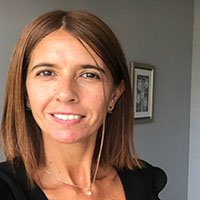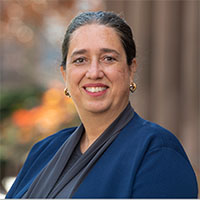On the Road to the Cartagena Congress Webinar Series
Psychoanalysis and Racism
Date: 26 May, 2023 (4 PM London Time)

Theme
Reflections on the relationship with the other, especially with what we consider different, put the issue of racism in a social foreground. This webinar will offer a psychoanalytic point of view on this social problem trying to understand its psychodynamic bases.
 Moderator: Patricia Olguín (Chile)
Moderator: Patricia Olguín (Chile)
Patricia Olguín is Clinical Psychologist and Psychoanalyst In-Training. She studied Psychology at Pontificia Universidad Católica de Chile and is currently a Candidate at the Chilean Psychoanalytical Association (APCh). She lives in Santiago de Chile and has worked for 20 years with adults and adolescents in private practice and private and public health organisations. She was also trained as a Psychoanalytical Psychotherapist in Short Term Psychotherapy.
 Jorge Bruce (Perú)
Jorge Bruce (Perú)
Jorge Bruce is Psychologist from the Pontificia Universidad Católica del Perú (PUCP). Master's degree (DEA) from the University of Paris. Member of the Peru Psychoanalytic Society. Professor at the PUCP. Columnist for the newspaper La República. Former Director of Community and Culture of the Board of Directors of FEPAL and of the editorial committee of Calibán. Former member of the Board and Executive Committee of the IPA. Former Chair of CAPSA (IPA). Former Chair of the Programme Committee of the IPA Congress, Vancouver 2021 on The Infantile. Current Chair of the IPA ING liaison committee with the Freudian Society of Mexico City, provisional society. Former Keynote speaker at the event, Encuentros de Psicoanalistas de Lengua Castellana, from which a book has been published in 2020 (APM). Author of several books on Psychoanalysis and Society, among others, the latest of which is the re-publication in Penguin Random House of "Nos habíamos choleado Tanto: Psicoanálisis y Racismo ".
Title: "Racism: The Elephant in the consulting room".
For many years -actually, since Freud himself- we psychoanalysts have acknowledged the presence of racism as a social disturbance outside our consulting rooms. When we see it in a patient's associations, we treat it as a pathology that could be addressed with our usual tools: aggression, vulnerability, and so on. And that was when we recognised it. We were often reluctant to see racism as a fundamental characteristic of our intimate exchanges, so we could not admit its pregnancy in transference and countertransference. We can't continue working in such a huge denial.
 Michelle Ann Stephens (USA)
Michelle Ann Stephens (USA)
Michelle Stephens, LP., Ph.D., is a graduate of the William Alanson White Institute of Psychiatry, Psychoanalysis & Psychology and a psychoanalyst practicing in New York. She is also Professor of English and Latino and Caribbean Studies at Rutgers University, and the Founding and Executive Director of Rutgers’ Institute for the Study of Global Racial Justice (ISGRJ). Originally from Jamaica, West Indies, she graduated from Yale University with a Ph.D. in American studies. She is the author of Black Empire: The Masculine Global Imaginary of Caribbean Intellectuals in the United States, 1914 to 1962 (Duke University Press, 2005) and Skin Acts: Race, Psychoanalysis and The Black Male Performer (Duke University Press, 2014). Recently she has published articles on the intersections of race and psychoanalysis in such journals as JAPA, Contemporary Psychoanalysis, Psychoanalytic Dialogues and Psychoanalytic Quarterly, Studies in Gender and Sexuality, and Psychoanalysis of Culture and Society.
Title: "Standing at a Crossroad: Race and Intersectionality in a Psychodynamic Context"
Over the course of the twentieth and twenty-first centuries, black thinkers, people of African descent in the Americas who have been shaped by histories of antiblack racism and colonialism, have made crucial interventions in understanding the dangers of a whiteness lived as a single-axis framework for subjectivity. The black feminist legal scholar Kimberle Crenshaw was one of these thinkers. At the end of the 1980s,she wrestled with the problem of a female blackness lived as an invisible intersectionality, in which “mutually exclusive categories of experience” prevented legal analysts from seeing “the compounded nature” of black female subjectivity as a complex, multi-dimensional unfolding of identity. This presentation will explore some of the implications of this two-fold insight, regarding both the dangers of a single-axis framework for white subjectivities and the complexities of the intersectionality of black female subjectivities, for psychoanalytic conceptions of the gendered, sexed, and racialized subject.
Organiser:
Mariano Ruperthuz